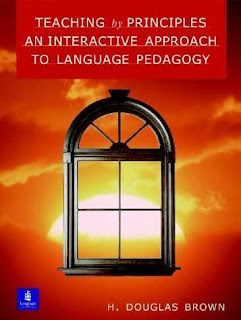Intrinsic Motivation
Refers to motivation that comes from inside an individual rather than from any external or outside rewards, such as money or grades.
The motivation comes from the pleasure one gets from the task itself or from the sense of satisfaction in completing or even working on a task.
An intrinsically motivated person will work on a math equation, for example, because it is enjoyable. Or an intrinsically motivated person will work on a solution to a problem because the challenge of finding a solution is provides a sense of pleasure. In neither case does the person work on the task because there is some reward involved, such as a prize, a payment, or in the case of students, a grade.
Intrinsic motivation does not mean, however, that a person will not seek rewards. It just means that such external rewards are not enough to keep a person motivated. An intrinsically motivated student, for example, may want to get a good grade on an assignment, but if the assignment does not interest that student, the possibility of a good grade is not enough to maintain that student's motivation to put any effort into the project.
Extrinsic Motivation
Motivating students by extrinsic or external means; encouraging on-task behavior with promise of reward, praise, or avoidance of punishment.
Extrinsic motivators or rewards are frequently used in schools. Candy, homework passes, or field trips may be offered to reward good behavior or performance; withholding or denying rewards serves to punish students whose behavior or performance does not meet expectations. Students may be drawn to extrinsic motivation because it rewards "good" or "best" behavior. Teachers may be drawn to rewards because they result in improved behavior in the short term.
Opponents of extrinsic rewards argue that they undermine learning by bribing or coercing desired behaviors from students. In their view, pursuit of learning or knowledge is properly motivated by enjoyment or curiosity rather than by recognition, reward, or fear of negative consequences.
Take a look on this explanation:
segunda-feira, 26 de outubro de 2009
Motivation - Question 7
By H. Douglas Brown – 1994
Answer – Question 7 – Page 45
The school curriculum is dictated by institutions that can be far removed from even teacher’s choice. Parent’s and society’s values and wishes are virtually forced onto pupils, whether they like it or not. The consequence of such extrinsic motivators is that schools all too often teach students to play the “game” of pleasing teachers and authorities rather than developing an internalized thirst for knowledge and experience.
Examples:
- Asking the students to bring lyrics of musics that they like;
- Group work and teaching English with videos and cartoons;
- Viewing the class as a team;
- Using conversation to improve the pronunciation;
- Teaching writing as a thinking process in which learners develop their own ideas freely and openely.
Interactive Questions for Piauí Students
Hello,
I would like to talk to you a little about you and your course...
1. What kind of subject about this course do you like to study?
2. Do you like to use pen-pal or another kind of interactive talking?
3. If you had to choose another prefession, what would you choose?
Se vocês preferirem podem responder em Português...
Thank you so much!!
domingo, 4 de outubro de 2009
Across the Universe
Across the Universe is an American musical film directed by Julie Taymor.It incorporates 33 compositions of the band The Beatles.
The story begins in Liverpool with a young boy called Jude. Against the wishes of his mother and his girlfriend, Jude decides to go to the United States to search his father. After meeting his father, Jude has nowhere to go. He knows Max and they bacome best friends. When Max goes home to visit his parents, he brings Jude with him. Then, Jude meets Max's sister Lucy.
After that, Max moves to New York and Jude goes with him. After Lucy's boyfriend, Daniel is killed in Vietnam, she goes to New York to visit Max. Her parents are againt this idea, but she goes.
A relationship starts between Jude and Lucy. When Max is sent to Vietnam, Lucy becomes involved in the anti-war movement, while Jude starts in a apolitical movement . Jude becomes unhappy with the time that Lucy spends with a political group. So Jude's art and his relationship with Lucy both start to be destroyed. In the end of the movie the couple stay together again.
The six main characters:
· Jim Sturgess as Jude Feeny
· Joe Anderson as Maxwell "Max" Carrigan
· Dana Fuchs as Sadie
· Martin Luther McCoy as Jojo
· T. V. Carpio as Prudence
33 compositions of The Beatles:
1. "Girl"
2. "Hold Me Tight"
3. "All My Loving"
4. "I Want to Hold Your Hand"
5. "With a Little Help from My Friends" —
6. "It Won't Be Long"
7. "I've Just Seen a Face" ax
8. "Let It Be"
9. "Come Together"
10. "Why Don't We Do It in the Road?"
11. "If I Fell"
12. "I Want You (She's So Heavy)"
13. "Dear Prudence"
14. "Flying"
15. "Blue Jay Way"
16. "I Am the Walrus"
17. "Being for the Benefit of Mr. Kite!"
18. "Because"
19. "Something"
20. "Oh! Darling"
21. "Strawberry Fields Forever"
22. "Revolution"
23. "While My Guitar Gently Weeps"
24. "Across the Universe"
25. "Helter Skelter"
26. "And I Love Her"
27. "Happiness Is a Warm Gun"
28. "A Day in the Life"
29. "Blackbird"
30. "Hey Jude"
31. "Don't Let Me Down
32. "All You Need Is Love"
33. "Lucy in the Sky with Diamonds
This film shows us the power of people. When we want something we can achieve. But nowadays there aren´t people like the movie characthers, because people are interested only in themselves. They don´t care of the world problems.
Assinar:
Postagens (Atom)



